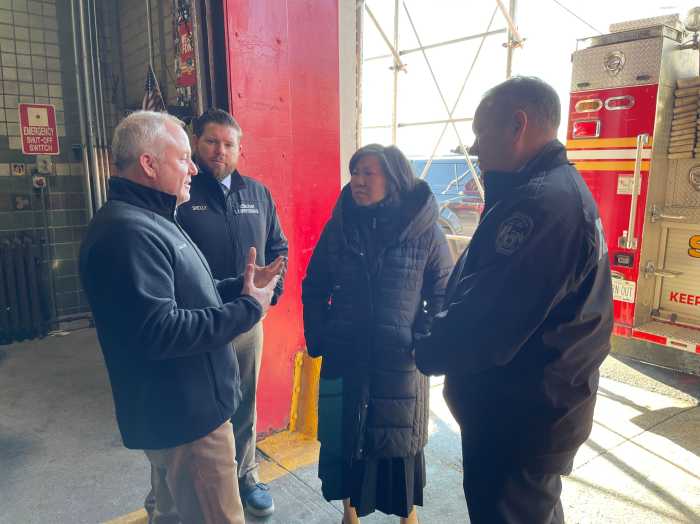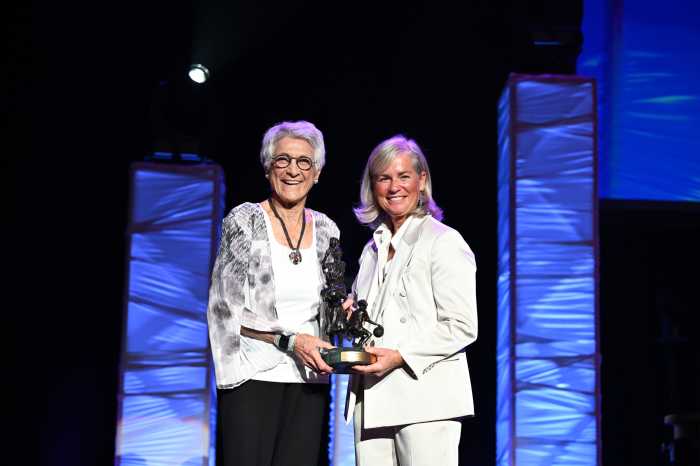By Alex Christodoulides
U.S. Rep. Anthony Weiner (D-Forest Hills) waited almost two months to let Fresh Meadows residents calm down after June's storm before he invited the Department of Environmental Protection to the area to hear people's concerns, but there was still criticism and frustration.
Three drenching storms — July 17, 2008, Aug. 8, 2007 and June 14, 2008 — have left the community with little patience for long-term plans and a great thirst for answers as to why the area often floods. Weiner invited DEP Commissioner Emily Lloyd and Deputy Commissioner James Roberts, who directs the Bureau of Water & Sewer Operations, to Utopia Jewish Center on flood-prone Utopia Parkway Tuesday night, where a full house was impatient for answers.
Weiner read Lloyd and Roberts the residents' written questions. What is taking so long to fix? Why does this area always flood during storms? Why can the city not put in more sewer lines? they asked.
“We don't think additional capacity at this location is the answer. We need a diversion,” Lloyd said.
Weiner had some questions of his own: Are there enough catchbasins? Is the size or shape of the pipes the issue?
But residents grew impatient and shouted over the congressman, and the meeting threatened at one point to dessolve into chaos.
“On a dry day, we walked the length of the sewer along Utopia Parkway and we found no obstructions, no flaws, nothing easy to fix,” Lloyd told the audience.
Among the Utopia corridor's problems are its low topography, inability of catchbasins to pour more water into the system, the fact the sewer pipes sit immediately below the roadway to leverage gravity as much as possible, and the limited size of those pipes because they must share space beneath the asphalt with other utility lines, Lloyd and Roberts said.
“What measures are in place to gauge whether the infrastructure can handle development?” Weiner read from a slip of paper.
DEP has asked the city Department of Buildings to consult it on certain projects, Lloyd said.
“What we have started doing with DOB is asking them to pass on to us any large projects that are likely to tax the system,” she said.
Lloyd said DEP is considering a yearlong study called flow monitoring to assess problems and see which areas can handle diverted stormwater. She said DEP had received a grant from the Rockefeller Foundation to study why storms seem to be growing more severe in recent years, but there will be no quick fix.
“We have to try to determine what kind of storms we'll be having in 25 years- — we don't want to build the system too big and run up your water bill,” she said.
That met with derision from the audience.
“It takes 10, 20 years to build a new sewer, and that's too long for you to wait,” Lloyd said.



































